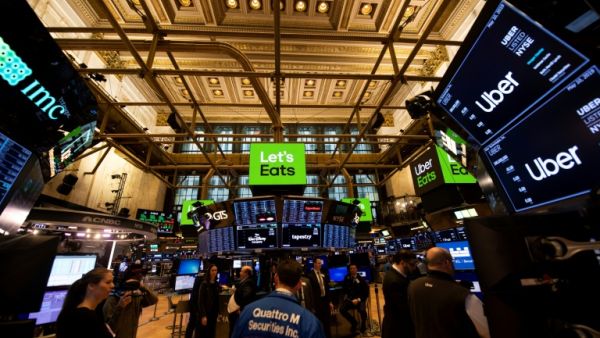The Saudi Public Investment Fund (PIF) investment in Uber is part of its vision towards investing in promising sectors. The US company represents an ideal model on the change of the transport sector, especially after its successful IPO in Wall Street on Friday.
{"preview_thumbnail":"https://cdn.flowplayer.com/6684a05f-6468-4ecd-87d5-a748773282a3/i/v-i-8…","video_id":"8f5a8a82-0d4c-49fd-ab07-d4406fc3b753","player_id":"8ca46225-42a2-4245-9c20-7850ae937431","provider":"flowplayer","video":"World's Top 10 Oil Exporters YouTube"}
Uber Technologies Inc’s conservative initial public offering could not keep its shares from sinking in their trading debut on Friday, fueling debate on Wall Street over whether the outcome of the most anticipated listing since Facebook Inc would weigh on other Silicon Valley ventures.
Saudi Arabia has direct investments in the group through PIF and indirect investments through SoftBank Vision Fund.
The fund bought in at USD48 a share, far higher than Uber’s debut price of USD41.57. As of Friday, Uber shares were fluctuating between about USD42 and USD45. The Saudi Arabian fund sank USD3.5 billion into Uber in exchange for shares and options. During the hours after Uber’s stock began trading, its stake fell to about USD3.3 billion.
This is expected in the debut launch for several reasons in which groups and investors show an economic realism that pushes them to adapt with market requirements. The fund, meanwhile seeks to achieve revenues on the long-run, not quick selling.
Uber CEO Dara Khosrowshahi sought to calm investors by highlighting the company’s growth opportunities and expansion plans.
“We’re going to be measuring success in three to five to ten years, not in one day,” he added.
Saudi analyst Abdullah Alrebdi told Asharq Al-Awsat that such investments are usually viewed on the long-run, stressing that Uber has a bright future and saying it will change the future of the transport sector.
Last year, Uber revenues surged 42 percent to USD11.3 billion compared to 2017.








